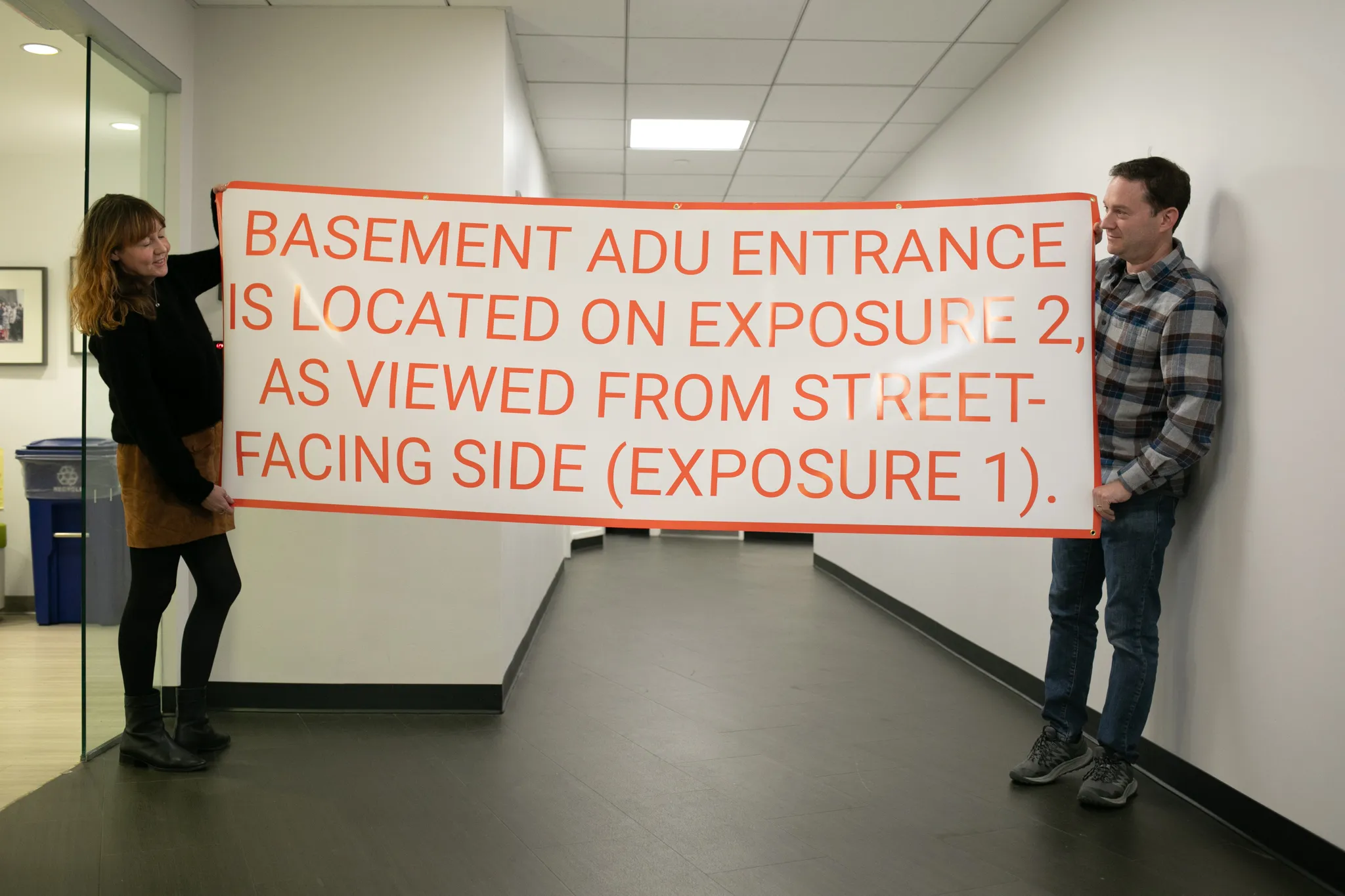Politicians Can't Back Sell-The-Projects Idea
Unsurprisingly, a group of legislators has a serious bone to pick with HUD regional director Sean Moss over his recent comments that selling some public housing developments might help solve New York’s affordable housing crisis. A letter addressed to HUD secretary Alphonso Jackson that was signed by 14 assemblymembers (including Joan Millman and Hakeem Jeffries)…


Unsurprisingly, a group of legislators has a serious bone to pick with HUD regional director Sean Moss over his recent comments that selling some public housing developments might help solve New York’s affordable housing crisis. A letter addressed to HUD secretary Alphonso Jackson that was signed by 14 assemblymembers (including Joan Millman and Hakeem Jeffries) makes the case that selling public housing is in no way a long-term solution for the city’s housing crisis:
At issue is the assertion that mass displacement of residents in one neighborhood, would benefit residents of another. At the very least, this assertion is misguided. The existing NYCHA developments are of much more value, to both the number of individuals which they provide shelter to as well as the diverse communities they help foster, than a short term budget windfall. Likewise, any purchase and/or development of affordable housing, short of new construction of full scale NYCHA developments, would be comparatively wasteful of the suggested sales proceeds and could by no means accommodate the same numbers of residents currently served by existing developments. In short, a sale of NYCHA properties would be a ‘one-shot’ deal, and would offer very few benefits for those in need of public housing extending past the year of the sale.
Full text of the letter on the jump.
HUD Official Speaks the Unspeakable: Selling The Projects [Brownstoner]






hey 1:56, the Brookings Institute just called and they want to award you a prize for the most wonky thought put into a forum where it mattered least.
They also want you to unknot your panties.
1.56 PM;
I don’t disagree with your point that there were other factors working against the city at the time. However, doesn’t this really reinforce my point even more? If you’ve got factors at play that are not in favor, then why in the world would you heap on another disincentive to private investment (i.e. rent control)?
In my mind, this was the essence of the failure of NYC’s leadership after WWII – they operated in a vacuum. They continued to pass laws that reduced the incentive to private investment, and at the same time continued to hand out subsidy after subsidy that raided the treasury. They took no account of the lure of the suburbs. The results? Mass disinvestment…Middle class flight…the welfare state.
Fortunately, these mistakes from the past are slowly being corrected. As I said above, the projects are one of the last vestiges from those bad old days.
Benson
“Funny how no one wants to be a cop, or pay them decently, but still scream there aren’t enough of them to protect them from those people in the projects.”
I don’t think people are complaining about that on this thread. If you’re making a generalized statement, the people on the street who ARE complaining about cops are complaining more about them shooting people, so it follows that they’d want less of them around.
The cops don’t create safety. Economic prosperity does and lack of hunger and envy create safety. Economic divides tempt people to break laws. Cops enforce laws, and in doing so, usually disrupt safetly with more violence.
Why is everyone talking about the cop who lives in the projects? Who cares. Boo freakin hoo. It means nothing to the projects or the topic.
New York City should force more cops and other civil servants to live in the projects. It should be part of the curriculum at the academy.
If the story is true, we should be glad a civil servant has chosen to live within NYC. It’s his choice though.
There are plenty of people who make 25K or less who aren’t living in the projects. Lil’ piggy in training should go to craigslist and find himself a rent share. He’ll find that there are plenty of fact checkers, freelance artists, and students from all sorts of academies who support themselves and make less than him. New York isn’t all trust fund kids yet.
Benson,
But you’re engaging in the post-hoc ergo proctor hoc fallacy (“Since no world wars happened after TV and 2 happened before TV, TV must produce peace”). A more accurate picture emerges if we consider the larger policy shifts of the time.
By the 1950s, gov’t subsidies for new construction in the suburbs plus changes in legal changes in depreciation accounting lowered the comparative rate of return for investment in the city vs. the suburbs.
NYC is not so expensive because of inefficient subsidies- unless you are including those for big business. There we are talking billions of dollars of revenue lost, subsidized by taxpayers- rich and poor alike. FCR is a case in point. I grew up the projects in the Bronx. My family lived in them for years. The problem with the projects is that they are – for good or bad- affordable to the lower middle class and working poor. And i think anyone who truly thinks eliminating housing subsidies is the answer is shortsighted. Eliminate the subsidies and tax breaks to all those big businesses, stop throwing money at them while they take their jobs overseas, if you want to see any real difference. But blaming housing projects for NYC’s ills? Puhleeze.
I believe “middle class” now refers to anyone who makes too much money to be afforded any kind of help (via subsidized health insurance or housing), yet cannot afford to buy a home and is just managing to cover life’s necessary expenses (which, for me, include food, housing, health insurance, disability insurance, renter’s insurance, clothing, commutation costs, and monthly saving, but not necessarily iPods, cars and vacations). Essentially, if you slip neatly through all the cracks, you are middle class. I am in the same boat as you Montrose. I make a good salary (more than a rookie cop but less than a first year attorney), commute 2 hours a day to Brooklyn, work full time, and rent. And yes indeed, I pay my taxes! I have been saving for a down-payment, but my nest egg has not increased in pace with prices, and I also need to actually be able to afford to LIVE in the place once I buy it. Because of the way I grew up, I am very conscious of how easy it is to slip from “us” to “them.” Heck, I was “them” for most of my childhood! What’s to be done? I don’t know. For myself, I sleep at night by staying out of debt, saving what I can, and volunteering through NY Cares to offer some comfort to single moms and their kids. It’s not much probably, but it’s something.
stuck_in_the_middle
“12:28- until the day you are willing to put your 100% cashmere coated, desk- sitting, restaurant-stuffing, pretentious, ignorant, ungrateful ass on the line for another human being I strongly suggest you not parade your ignorance any further than you already have. When you can begin to comprehend one iota of what a cop’s life is like, then you can say something. One thing I do know for sure- the day comes you want one, you’ll be very ready to kiss their underpaid butts. Until then please stick to subjects you know something about- like wine.”
Despite your little tantrum, you have provided not one shred of evidence to disprove what I wrote at 12:28. Care to debate me with facts rather than presumptuous generalizations?
I have a lot of respect for police officers, but for a job that does not require a college education, they do pretty well after only five years on the job. I only wish that I could retire with a pension and medical benefits after 20 years of working.
BTW, I’m a beer drinker. Wine’s not for me.
Sincerely,
A person who was not paid to go to school
1.39;
I was referring to the 1920’s, when 250,000 units of housing was produced PER YEAR, as opposed to these days, when the figure is more like 35,000/year.
The production of housing ground to a halt when rent control was introduced.
Benson
Benson,
NYC’s rent control emerges in the 1940s and is firmly in place during the halcyon days you refer to when you say “This is the way it used to be in NYC”
Subsidies may be inefficient, but the marketplace can be as well — as the historic and on-going failure of developers to produce low-income housing demonstrates.